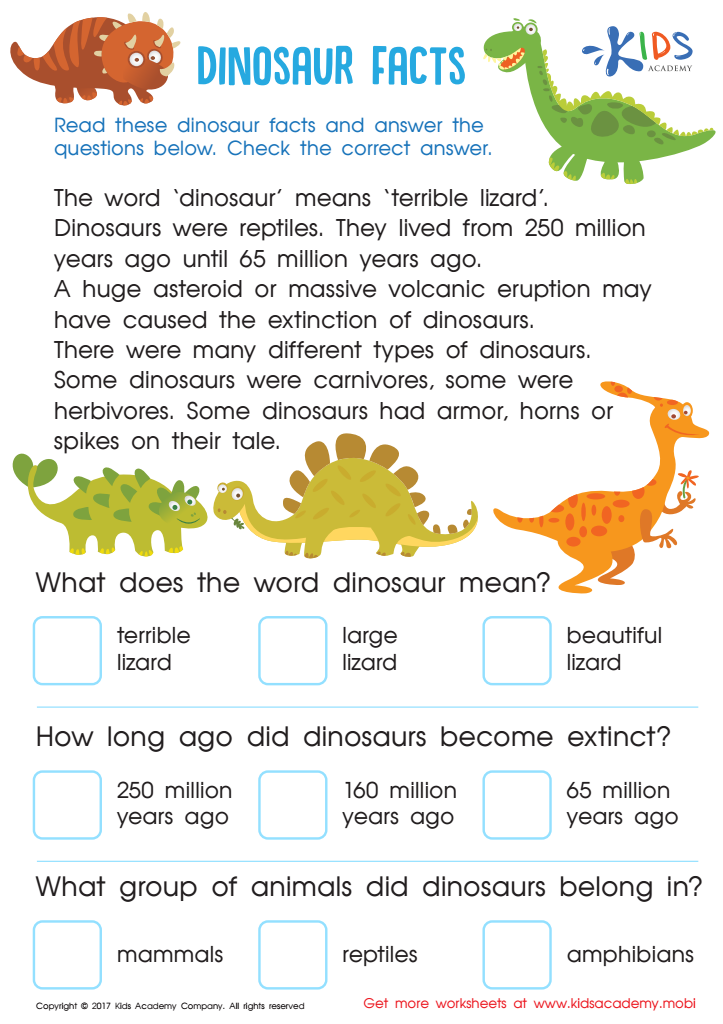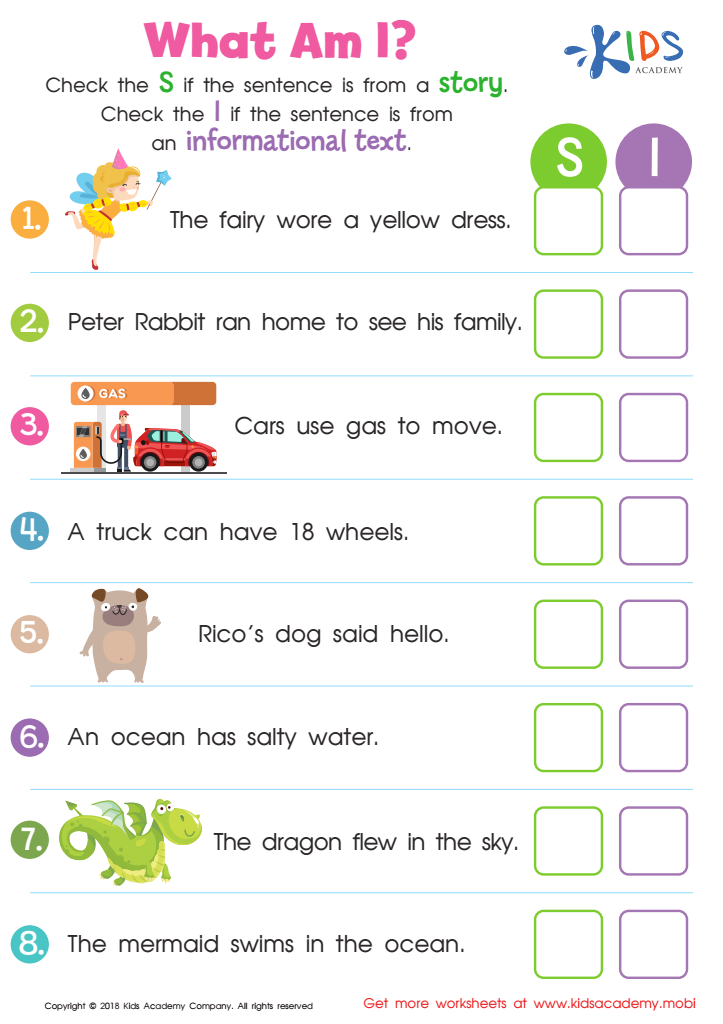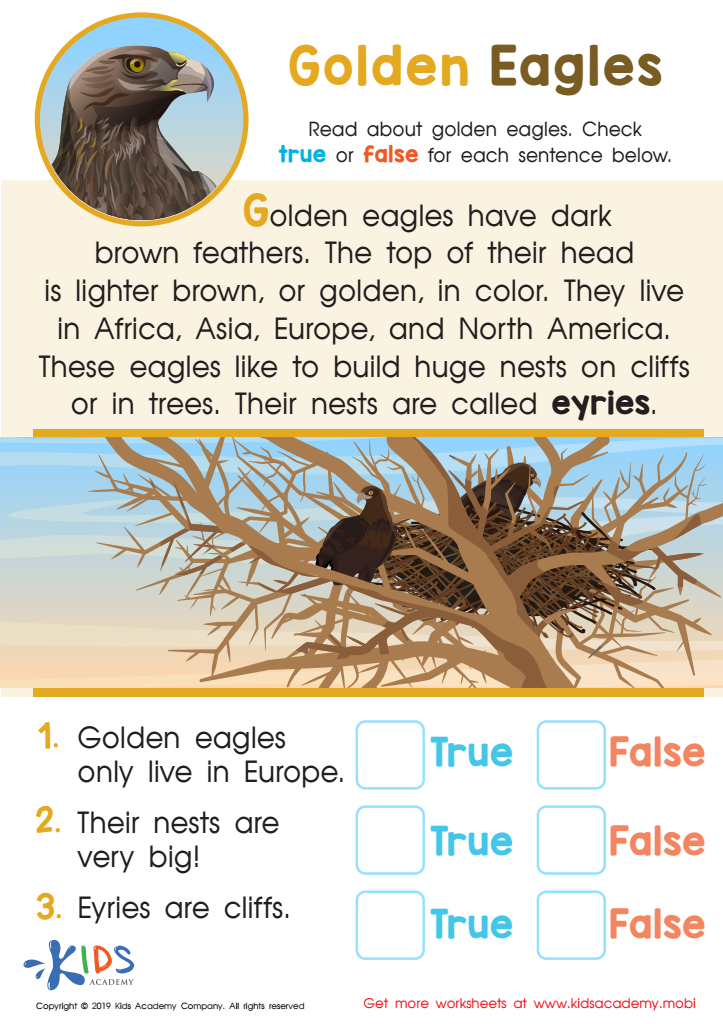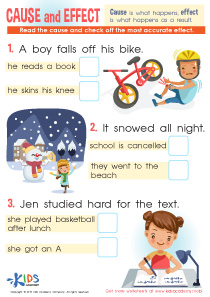Vocabulary Building Normal Reading Non-Fiction Worksheets for Ages 7-9
3 filtered results
-
From - To
Discover our engaging "Vocabulary Building Normal Reading Non-Fiction Worksheets" designed for kids ages 7-9! These interactive worksheets help young learners expand their word bank through a variety of stimulating non-fiction texts. Each worksheet is crafted to enhance reading comprehension while introducing essential vocabulary in an enjoyable way. With fun exercises, intriguing topics, and illustrative examples, students will develop their reading skills and boost their confidence. Perfect for classrooms or at-home learning, these resources support foundational literacy skills in a dynamic context. Equip your child with the tools they need to explore, understand, and articulate their world without limits!


Dinosaur Facts Worksheet


What Am I? Worksheet


Golden Eagles Worksheet
Vocabulary building in reading, especially non-fiction, is crucial for children aged 7-9 as it lays the foundation for academic success and lifelong learning. At this stage, children are increasingly exposed to more complex texts, which introduce a wealth of concepts and terminology related to various subjects. By engaging with non-fiction materials, students not only expand their vocabulary but also develop critical thinking skills, learn to ask questions, and understand the world around them.
Strong vocabulary skills enhance comprehension, allowing children to grasp detailed information better. When they know the meaning of words, they can construct connections, analyze the content, and engage more deeply with the material. This becomes especially important in non-fiction texts, which often convey facts and explanations that require a solid understanding of language.
Moreover, vocabulary growth during these formative years fosters confidence in reading and communicating, ultimately sparking a lifelong interest in learning and discovery. Parents and teachers play a vital role in this process; by providing resources, encouraging discussions about new words, and selecting diverse non-fiction texts, they nurture children’s curiosity and set them on a path to academic achievement and effective communication. Investing in vocabulary building now will yield substantial benefits in the future.
 Assign to My Students
Assign to My Students















